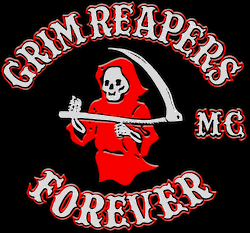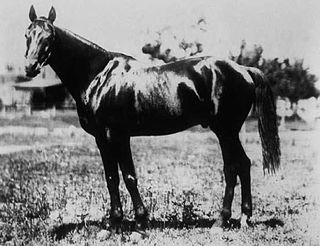
Kentucky, officially the Commonwealth of Kentucky, is a state located in the Southern United States. Kentucky is the 37th most extensive and the 26th most populous of the 50 United States.

Princeton is a home rule-class city in Caldwell County, Kentucky, in the United States. It is the seat of its county. The population was 6,329 during the 2010 U.S. Census.

St. Matthews is a city in Jefferson County, Kentucky, United States. It forms part of the Louisville Metro government but is separately incorporated as a home rule-class city. The population was 17,472 at the 2010 census, up from 15,852 at the 2000 census. It is the 23rd-largest city in the state.
Clarence Jordan, a farmer and New Testament Greek scholar, was the founder of Koinonia Farm, a small but influential religious community in southwest Georgia and the author of the Cotton Patch paraphrase of the New Testament. He was also instrumental in the founding of Habitat for Humanity. His nephew, Hamilton Jordan, served as White House Chief of Staff during the Jimmy Carter administration.

The Kentucky warbler is a small species of New World warbler. It is a sluggish and heavy warbler with a short tail, preferring to spend most of its time on or near the ground, except when singing.
Park Hill is a neighborhood in Louisville, Kentucky, United States, located just west of Old Louisville. Its boundaries are the CSX railroad tracks to the east, Hill Street to the south, Twenty-sixth street to the west, and Virginia Avenue and Oak Street to the north. In the 19th century, the southwestern farmland portion of the neighborhood was known as the Cabbage Patch, the citizens of which inspired Alice Hegan Rice's 1901 children's novel Mrs. Wiggs of the Cabbage Patch.
Cotton Patch Gospel is a musical by Tom Key and Russell Treyz with music and lyrics written by Harry Chapin and produced by Philip M. Getter just after Chapin's death in 1981. It ran off-Broadway at the Lamb's Theatre for 193 performances beginning in October 21, 1981. Based on the book The Cotton Patch Version of Matthew and John by Clarence Jordan, the story retells the life of Jesus as if in modern day, rural Georgia. Though the setting and the styling of the language greatly differs from the original telling of the Gospels the plot structure and the message of the story stays true to the historical recording in The Gospel of Matthew.

The terms Upland South and Upper South refer to the northern section of the Southern United States, in contrast to the Lower South or Deep South.

Grim Reapers MC is an independent US-based motorcycle club founded during 1965 in Louisville, Kentucky

The OG-107 was the basic work utility uniform (fatigues) of all branches of the United States Armed Forces from 1952 until its discontinuation in 1989. The designation came from the U.S. Army's coloring code "Olive Green 107" and "Olive Green 507", which were shades of dark green, the OG-107 being cotton and OG-507 polyester-cotton blend introduced in the early 1970s. Regardless of the fabric, the two shades were almost identical. The OG-107 was superseded by the Battle Dress Uniform (BDU) throughout the 1980s, and was also used by several other countries, including ones that received military aid from the United States.

The Cotton Patch is a breed of domestic goose originating in the Southern United States. It is so named because it traditionally was used to weed fields of cotton, corn, and other crops.
The 1951 Kentucky Wildcats football team represented the University of Kentucky in the 1951 college football season. The Wildcats scored 314 points while allowing 121 points. Ranked #6 in the AP Poll at the beginning of the season, the team finished the season with a victory in the 1952 Cotton Bowl Classic and a #15 AP ranking.

Although Kentucky's culture is generally considered to be Southern, it is unique in that it is also influenced by the Midwest and Southern Appalachia in certain areas of the state. The state is known for bourbon and whiskey distilling, tobacco, horse racing, and college basketball. Kentucky is more similar to the Upper South in terms of ancestry which is predominantly American. Nevertheless, during the 19th century, Kentucky did receive a substantial number of German immigrants, who settled mostly in the Midwest, along the Ohio river primarily in Louisville, Covington, and Newport. Only Maryland, Delaware, and West Virginia have higher German ancestry percentages than Kentucky among Census-defined Southern states, although Kentucky's percentage is closer to Virginia's than the previously named state's percentages. Kentucky was a slave state, and blacks once comprised over one-quarter of its population. However, it lacked the cotton plantation system and never had the same high percentage of African Americans as most other slave states, with less than 8% of its current population being black, Kentucky has a relatively significant rural African American population in the Central and Western areas of the state. Kentucky adopted the Jim Crow system of racial segregation in most public spheres after the Civil War, but the state never disenfranchised African American citizens to the level of the Deep South states, and it peacefully integrated its schools after the 1954 Brown v. Board of Education verdict, later adopting the first state civil rights act in the South in 1966.
Joe Cotton was an American Thoroughbred racehorse that is best known as the winner of the 1885 Kentucky Derby. He was sired by King Alfonso who also sired the 1880 Derby winner Fonso. The horse was reportedly named after a bookie.

Chant was an American Thoroughbred racehorse that won the 1894 Kentucky Derby, Phoenix Stakes, and Clark Handicap. He was related through his damsire, King Alfonso, to Kentucky Derby winners Fonso (1880) and Joe Cotton (1885) and through his sire, Falsetto, to His Eminence (1901) and Sir Huon (1906).
The 1952 Cotton Bowl Classic was the sixteenth installment of the Cotton Bowl Classic.

Cotton Patch Café is an American restaurant chain. The chain has 56 casual dining restaurants located in the states of Arkansas, Texas, New Mexico and Oklahoma.
Mrs. Wiggs of the Cabbage Patch is a 1942 American comedy-drama film starring Fay Bainter and directed by Ralph Murphy. It was based on the play by Anne Crawford Flexner that premiered on Broadway in 1904, which was in turn adapted from the 1901 novel of the same name by Alice Hegan Rice.
The lynching of the Walker family took place near Hickman, Fulton County, Kentucky, on October 3, 1908, at the hands of about fifty masked Night Riders. David Walker was a landowner, with a 21 1/2-acre farm. The entire family of seven African Americans, parents, infant in arms, and four children, was reported killed, with the event carried by national newspapers. Governor Augustus E. Willson of Kentucky strongly condemned the murders and promised a reward for information leading to prosecution. No one was ever prosecuted.

Our Women and Children was a magazine published in Louisville, Kentucky by the American Baptist, the state Baptist newspaper. Founded in 1888 by William J. Simmons, president of State University, the magazine featured the work of African-American women journalists and covered both juvenile literature and articles focusing on uplifting the race. The magazine staff was made up of women who had an affiliation with State University. Of the hundreds of magazines begun in the United States between 1890 and 1950, very few gave editorial control or ownership to African American Women. Our Women and Children was one of them. It had a national reputation and became the leading black magazine in Kentucky before it folded in 1891 after Simmons' death.














